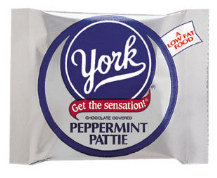 |
General Information | Grading | Class blog | Week-by-week | Useful links | Viking Code | Berry COM Job Bank
Note: This
Web page will change; please refer to it frequently. Do not
merely print it out the first week of class.
Lose your paper
syllabus? Download another one
Welcome!
Editing is not just something that goes on in a newspaper city room, at the news desk of WSB-TV or behind computers at CNN.com. Clear, effective writing, speaking and thinking are vital in any form of communication, be it a news story, a public relations campaign, broadcast script, church sermon or an application to graduate school. This course will make you a more effective communicator, no matter what your career plans. Of course, the focus here is on news, and editing is one of the most sought after job skills in the news business. You will learn to think as editors think, to work as editors work, and to solve the problems encountered in newsrooms everywhere.
The design of this course reflects my experience in journalism, mostly in print and online. I have been a writer, reporter, photographer and editor. Before earning a doctorate and getting into full-time teaching, I was an editor and reporter covering Internet-related businesses and technologies. Why bring that up? Because my goal is to make this course as real-world as possible. We'll be looking at real issues, real problems and real solutions.
During our time together, I plan to treat you as fellow professional journalists acquiring new skills. I expect you to respond in kind by the quality of your assignments, your ability to meet deadlines, and with active participation, impeccable class attendance and perfect punctuality. Since you already have acquired news writing skills as prerequisites for this course, our relationship is roughly analogous to orienting and training a reporter for the copy desk.
Journalism and the roles of journalists continue to evolve, particularly with the continuing evolution in digital, the advent of tablets and the ubiquity of smartphones. This course will introduce you to what is changing in editing and what is not. We will be discussing the fundamentals of editing that have been vital to newswork for generations. We also will be looking at how new technologies and new challenges are affecting journalism.
Several themes will guide our explorations, including:
· Precision. If the information
is not truthful and accurate, it's not good journalism. Our job as editors
is to ensure the accuracy of everything we do and publish.
· Basics. No matter how high-tech things get, good editing requires
the consistent, skilled application of fundamentals.
· Imagination. Great editing requires creativity and flexible thinking.
· Convergence. The walls have come down within and between media. We
need to be able to operate in multiple domains, and to think for a mobile, geomapped, hyperlocal and increasingly personalized future. We need to think of our stories across several media, and to take advantage of each of those media.
· Critical thinking. In journalism as in life, you
will find that not every question has a clear, unambiguous answer, if it has an answer at all. Expect to be challenged to think on your feet, to
analyze ambiguous information, to find answers on your own, and to evaluate
the credibility and utility of various sources of information.
In this course, it is critical that we communicate well. If there is anything you do not understand, please ask about it immediately. Do not be shy; do not wait, hoping it will all become clear; do not assume that you are the only one who does not get the material. There are no dumb questions. OK, there aren't many dumb questions.
I love journalism, and I want to help make it better by training a top-flight group of new journalists to enter the field. My goal for you is to learn about editing, to learn to edit and, I hope, for you to gain some of my enthusiasm for news, for editing and for language. If you don't come to share my passion, that's OK. Even if this is not your cup of tea, you will gain skills and perspectives that will make you more effective in any communicating you do, in whatever job or career you choose.
“Editor: A person employed by a newspaper, whose business it is to separate the wheat from the chaff, and to see that the chaff is printed.”--Elbert Hubbard, 1856-1915
"Eloquence is an art of saying things in such a way that those to whom we speak may listen to them without pain and with pleasure; that they feel themselves interested, so that self-love leads them more willingly to reflection upon it." --Blaise Pascal, 1657
Catalog description: Selection and preparation of written and pictorial materials for newspapers, magazines and related media. Laboratory included. Prereq: COM 301.
Course
Purpose & Objectives: Wherever people use language, they need
editors. Students will learn to edit and write accurate, relevant and timely
news articles, press releases, magazine articles and other communications.
There will be an emphasis on grammar, spelling, syntax, style, electronic
editing and other elements of complete, concise and accurate publishing. Current
events, online news environments, and editing in and for digital media also
will be emphasized.
By the end of this course, my goal is for students to:
